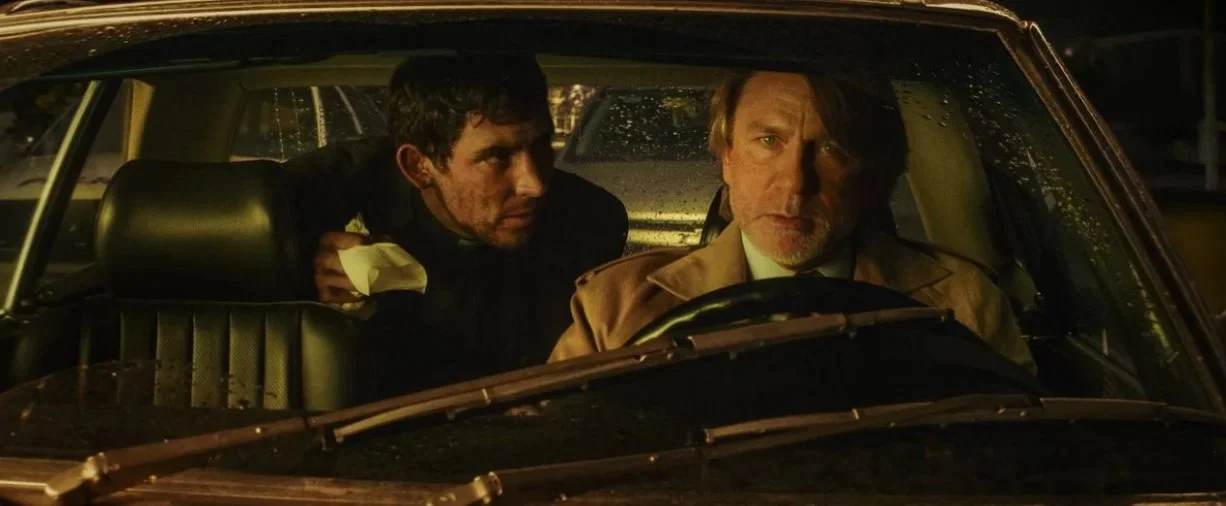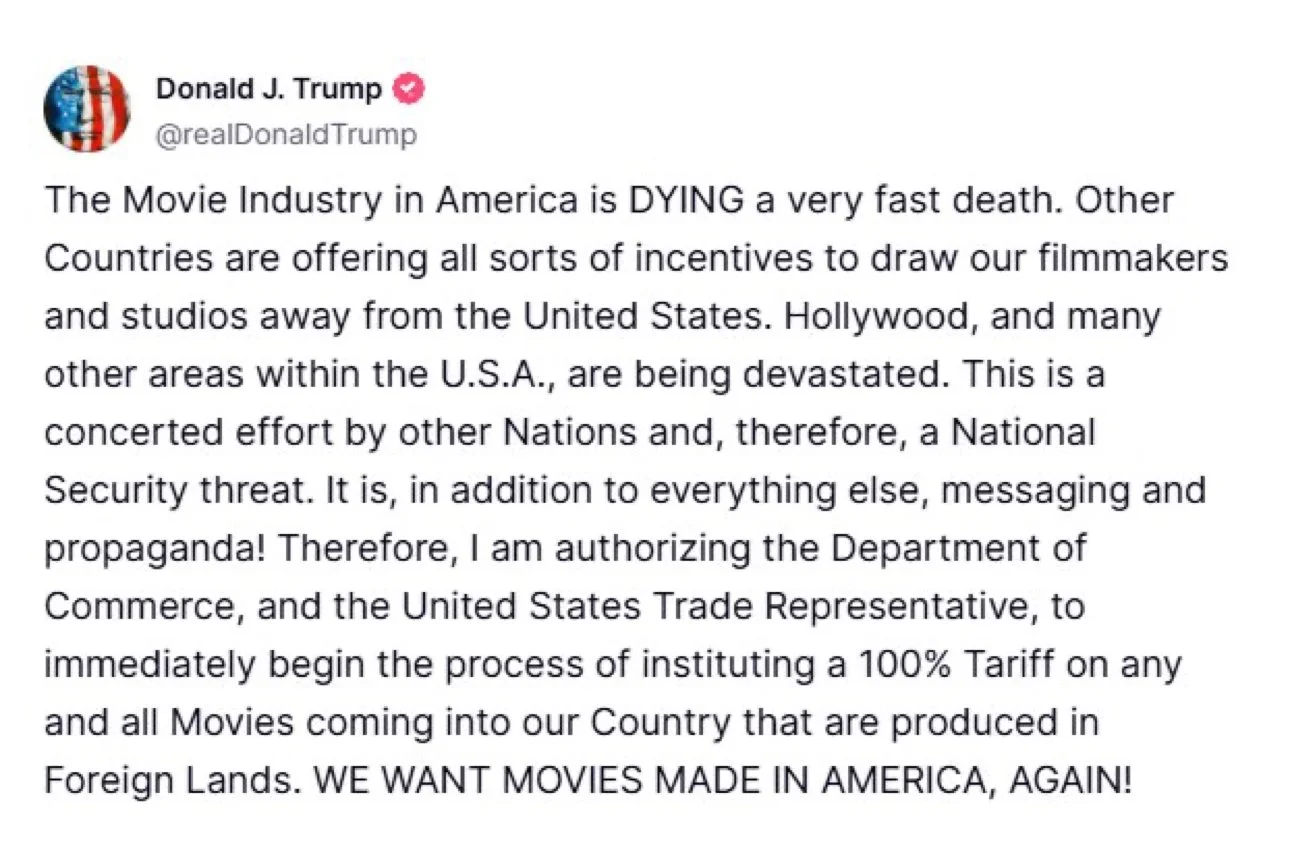I’ll have some thoughts on this in the coming hour, but since it’s just breaking, and everyone in the industry will be talking about this bombshell announcement, if it does indeed come to fruition, here is Donald Trump’s tweet:
UPDATE: Correct me if I’m wrong, but when the President orders any kind of tarrif implementation, it must then go through the the U.S. Trade Representative and then the Commerce Department. This is how the process to impose 100% tariffs on imports of movies that are produced in “foreign lands” would basically come to fruition. It sounds like Trump has apparently started the process.
He’s calling productions that choose to shoot outside the U.S. — many times because it’s cheaper to do so — a “national security threat.”
Is it any coincidence that Trump’s comments comes right after it was reported that his special envoy to Hollywood, Jon Voight, was devising a plan to save the entertainment industry. Voight met with guild officials and studio executives in recent weeks, and there was some expectation of a federal tax incentive.
The film industry has long pushed for a more robust federal tax incentive to boost domestic film production, instead of depending solely on individual state incentives. California, in particular, has suffered significantly from what’s often referred to as “runaway productions.”
There have also been worries that Trump might attempt to limit international filming, especially since major Hollywood productions have often been drawn to countries like the UK, Canada, and Australia due to their attractive incentive programs, and that’s precisely what’s just happened.
I’m not entirely sure how this is going to be implemented as Trump’s tweet seems to lack an assortment of critical details, but if I had to guess, his “100% tarrifs” policy would primarily take aim at Hollywood studios who decide to shoot movies outside the United States.
From a logistical standpoint, this seems extremely difficult to implement. How could it even be enforced in any practical or effective way? Ultimately, there are only two likely outcomes: either the studios comply, or they unite and take legal action.






